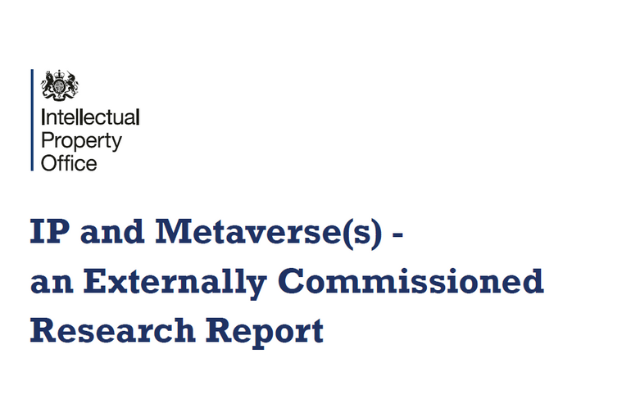Queen Mary publishes a government report exploring intellectual property in the metaverse
A new report by Queen Mary Intellectual Property Research Institute (QMIPRI) delves into the potential ramifications of the Metaverse on intellectual property (IP) rights.

Commissioned by the UK Intellectual Property Office (UKIPO), the report aims to inform the organisation's vision and policy concerning Metaverse's design, development, and implementation. Authored by Dr Gaetano Dimita, Dr Yin Harn Lee (University of Bristol), Dr Michaela MacDonald, Dr Anthony Michael Catton, Zeynep Kubra Kavcar Penbegullu, and Juan Alberto Pulido Lock, the report sheds light on how the Metaverse might impact trademarks, designs, copyrights, patents, and enforcement within UKIPO's jurisdiction. Additionally, it explores how the findings can contribute to UKIPO's ongoing transformation program.
Metaverse, still in its early stages of development, promises a future where physical and digital worlds converge. "This convergence presents both opportunities and challenges for intellectual property," said Dr Gaetano Dimita. "While some issues, like jurisdiction and enforcement, echo debates from the early days of the internet, the Metaverse's unique characteristics necessitate a fresh look at how IP rights will be protected."
The report emphasizes the importance of addressing existing shortcomings in IP frameworks to ensure the Metaverse fosters innovation without compromising user rights. Dr Michaela MacDonald added, "The potential disruption caused by emerging technologies like AI is also a cause for concern, as it raises questions about human oversight and potential circumvention of legal frameworks."
Given the evolving nature of the Metaverse, the report acknowledges the difficulty of predicting specific IP issues. However, it suggests a hybrid model, featuring interconnected "Metaverses" alongside dominant regional players, as the most likely scenario.
The report underscores the importance of human-centric design principles in shaping future IP strategies for the Metaverse. Dr Yin Harn Lee stated, "Standards, ethics, and regulations are expected to be at the forefront of discussions moving forward."
The complexity of the Metaverse, characterised as a persistent, ever-evolving matrix of IP products and services, is a central theme. The report emphasises that IP will fundamentally shape how the Metaverse is created, populated, and experienced, including user migration between different Metaverses.
While a definitive IP strategy for the Metaverse remains elusive, the report recommends a human-centric design approach as a cornerstone for future policy development.
Acccess the IP and Metaverse(s) – an externally commissioned research report via the GOV.UK website.